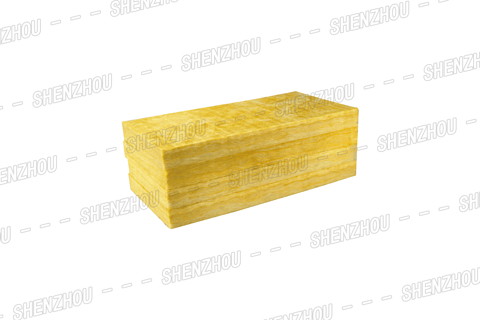
Glass wool thickness
7/2/20246 min read

In the construction industry and insulation materials field, the thickness of glass wool (also known as glass felt or glass fiber felt) is a crucial parameter. It not only affects the quality of building insulation, but also directly affects the cost of materials, construction difficulty, and overall performance of the building. This article will delve into the selection of glass wool thickness, influencing factors, and best practices in different application scenarios.
1)、 Selection of glass wool thickness
The selection of glass wool thickness requires comprehensive consideration of multiple factors, including the building's functional use, insulation requirements, external environmental conditions, construction conditions, and budget. Generally speaking, the higher the insulation requirements, the greater the required thickness of glass wool. Meanwhile, external environmental conditions such as climate conditions, building orientation, and building height can also affect the selection of glass wool thickness. In terms of construction conditions, factors such as construction difficulty and construction period need to be considered. Finally, budget is also one of the important factors determining the thickness of glass wool.
Categories
Popular
Applications of Glass Wool Board:
Interior Wall Compartments:
Enhances the functionality and aesthetics of interior spaces.
Ceiling Systems:
Provides effective insulation for ceilings, contributing to energy efficiency.
Insulation of Iron Sheet Air Ducts or Bellows:
Ideal for insulating ductwork, ensuring thermal efficiency.
Sound Absorption and Noise Reduction:
Reduces noise levels in machine rooms, creating a quieter working environment.
Exterior Wall Insulation:
Offers insulation for residential building exteriors, contributing to energy savings.
Glass Wool Insulation





When selecting the thickness of glass wool, the following points should also be noted:
1. Avoid being too thick or too thin: Too thick glass wool can increase material costs and construction difficulties, while too thin glass wool may not meet insulation requirements. Therefore, when choosing the thickness of glass wool, it is necessary to weigh various factors and find the optimal balance point.
2. Consider long-term effects: When selecting the thickness of glass wool, it is necessary to consider its long-term insulation effect. Some glass wool materials may experience compression deformation, aging, and other issues during use, leading to a decrease in insulation effectiveness. Therefore, when selecting materials, it is necessary to choose products with good quality and stable performance.
3. Compliance with relevant standards: When selecting the thickness of glass wool, it is necessary to comply with the building insulation standards of relevant countries or regions. These standards usually specify insulation requirements for different types of buildings and different usage functions, providing important references for selecting the thickness of glass wool.
2)、Factors affecting the thickness of glass wool
1. Insulation requirements: Insulation requirements are the main factor determining the thickness of glass wool. Different types of buildings and different functions require different insulation requirements, so it is necessary to choose glass wool of different thicknesses to meet the requirements.
2. External environmental conditions: External environmental conditions such as climate conditions, building orientation, building height, etc. can also affect the selection of glass wool thickness. In areas with harsh climate conditions, it is necessary to choose thicker glass wool to enhance the insulation effect. In terms of building orientation and height, it is necessary to consider the impact of factors such as sunlight and wind on the insulation effect.
3. Construction conditions: Construction conditions such as difficulty and duration can also have an impact on the selection of glass wool thickness. When selecting the thickness of glass wool, it is necessary to consider the impact of construction conditions on material costs, construction difficulty, and other aspects.
4. Budget: Budget is another important factor in determining the thickness of glass wool. When choosing the thickness of glass wool, it is necessary to weigh various factors based on the budget situation and find the most economical and reasonable solution.
3)、 Best practices in different application scenarios
1. Residential buildings: In residential buildings, insulation requirements are usually high. Generally speaking, using thicker glass wool material for the external wall insulation layer can improve the insulation effect, while reducing the wall heat transfer coefficient and indoor temperature difference. In roof and floor insulation, thicker glass wool materials can also be used to enhance the insulation effect.
2. Industrial buildings: In industrial buildings, insulation requirements are relatively low. Due to the high space and large area of industrial plants, thinner glass wool materials can be used to reduce material costs and construction difficulties. At the same time, attention should also be paid to fire prevention, corrosion prevention, and other issues in industrial plants, and glass wool materials with corresponding properties should be selected.
3. Cold storage and cold storage: In cold storage and cold storage, insulation requirements are very high. In order to maintain low temperature and reduce energy loss, it is necessary to use thicker glass wool material to enhance the insulation effect. When selecting materials, attention should also be paid to their waterproof, moisture-proof, and low-temperature resistance.
4. Pipeline insulation: Glass wool material is also widely used in pipeline insulation. For pipes with different diameters and temperatures, it is necessary to choose glass wool materials of different thicknesses to adapt. When selecting materials, attention should also be paid to their high temperature resistance and fire resistance.
In short, when choosing the thickness of glass wool, it is necessary to comprehensively consider various factors and weigh the pros and cons. It is of great significance to enhance insulation effectiveness and improve building performance by selecting the appropriate thickness of glass wool and taking corresponding measures.

Why Choose SHENZHOU Glass Wool Board?
SHENZHOU® Glass Wool Board not only meets the essential requirements of thermal insulation but also excels in sound absorption and noise reduction. Its adaptability to various settings, coupled with the convenience of construction and installation, positions it as a leading choice for architects, builders, and contractors.
In conclusion, the broad application prospects of SHENZHOU® Glass Wool Board make it a comprehensive solution for enhancing comfort, energy efficiency, and acoustic performance across diverse projects. Choose SHENZHOU® for insulation solutions that go beyond expectations.










About Us
Click the button below to get more information about us
Newsletter
Click to subscribe for more information
Follow Us
Contact Us
Address
Dacheng town, Langfang City, Hebei province, China
Phone
+86 185 03165 626


